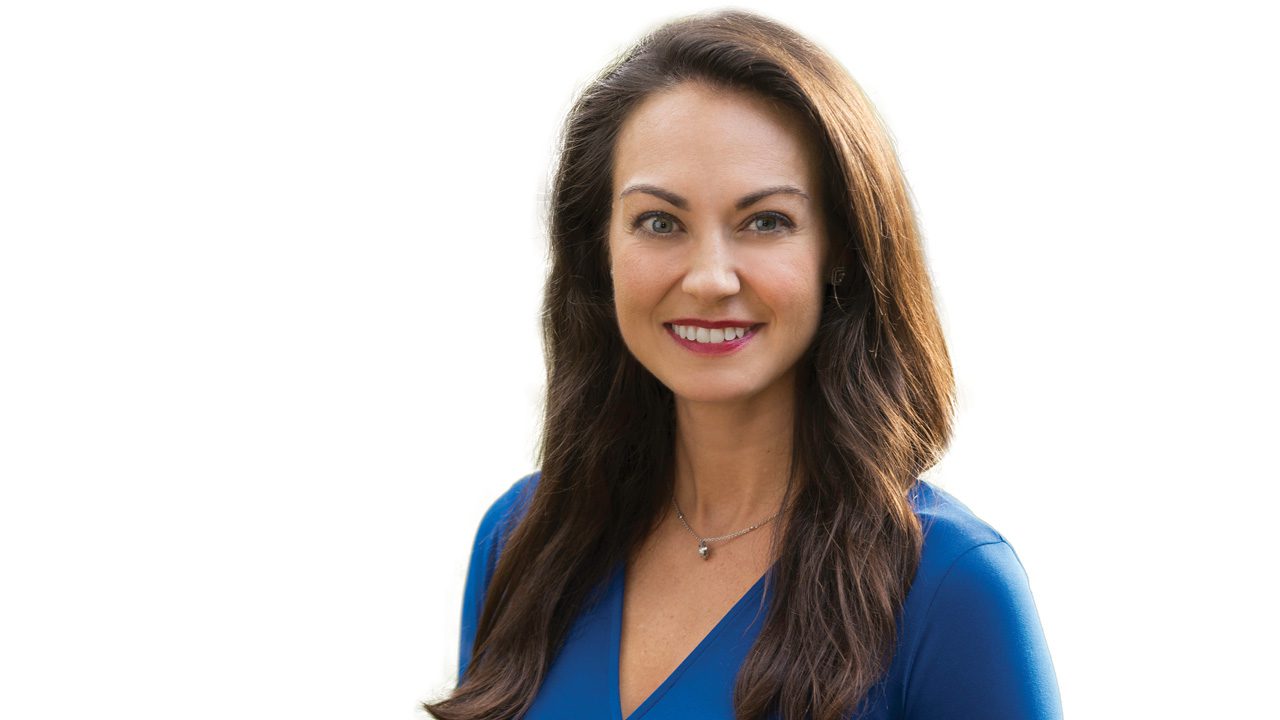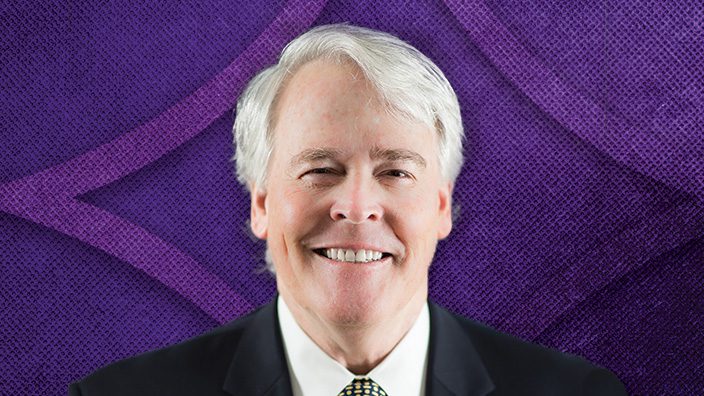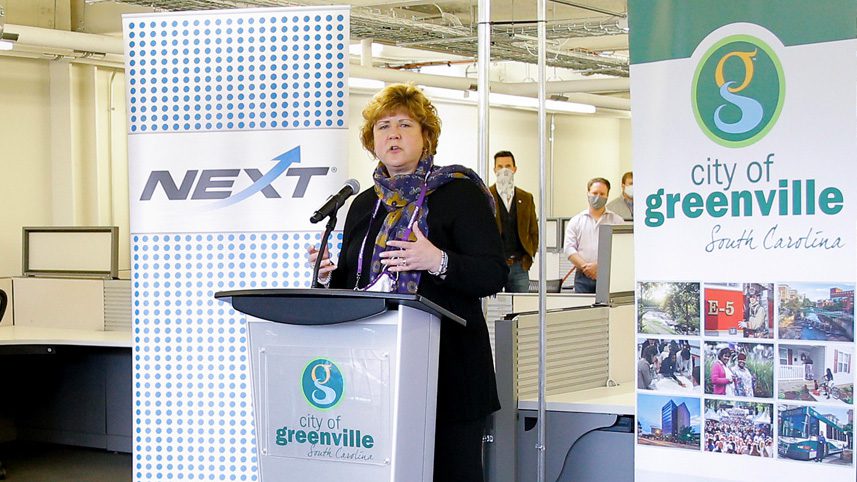

Dr. Matt W. Wilson ’86 visits Furman’s campus.
A System That Looks Like Us
Dr. Matt W. Wilson ’86 has made a planned gift of $4 million to Furman’s Institute for the Advancement of Community Health.
By Liv Osby
Nothing in recent memory has illustrated the health care disparities between people of different demographic groups more clearly than the global pandemic.
How do you get to the doctor when you don’t have a car? How do you pay the doctor or buy medicine when your low-wage job doesn’t offer health coverage? How do you communicate with the nurse if there’s a language barrier?
The questions disproportionately affect African American and Latino communities. To help address this, Dr. Matt W. Wilson ’86, a physician who cares for children with eye cancer, is making a planned gift of $4 million to the university’s Institute for the Advancement of Community Health to take on these health care issues.
“It’s clear that health care disparities are real and they need to be addressed, and I’m incredibly proud of the fact that Furman has an avenue to study and provide solutions for these challenges,” he says. “The goal is to ensure a legacy for the opportunities that IACH is providing for the students at Furman, giving them the experiential education they need to pursue health care careers and be a part of the solution.”
Wilson is a professor of ophthalmology at the University of Tennessee Health Science Center, where he is also the vice chair for Academic Affairs. He is also the chief of ophthalmology at St. Jude Children’s Research Hospital in Memphis, where he holds the chair of excellence in pediatric ophthalmology.
“Dr. Wilson has proven to be a champion of health care for those who need it most and of educating future health care providers who will serve their communities,” says Furman President Elizabeth Davis. “We are so grateful to Matt for his generosity and for his commitment to his alma mater and our students.”
IACH helps the one-third of Furman students who want to pursue careers in health by offering internships that make them more competitive for graduate school and enable them to better understand their chosen field, says IACH Executive Director Susan Ybarra ’92.
The institute works with a variety of community health care partners on research and internships. Students might spend time at a hospital observing general surgery, for example, or at a cardiac rehab center shadowing a physical therapist. Or they may pursue nonclinical careers focused on education, poverty, food insecurity and other social determinants that affect people’s health, says Ybarra.
Furman’s Master of Science in Community Engaged Medicine program also will benefit from the gift, says Victoria Turgeon, the program’s director and a biology professor. Now in its fourth year, the program blends the biomedical sciences with population health to advance students academically while involving them in underserved areas of the community. It also seeks to increase diversity and cultural competence among health care providers.
A longtime advocate of real-world experiences in addition to classroom education, Wilson has invited Furman students to spend summer internships in Memphis.
“The biggest thing this money will help us do is to increase the access of students to these experiences,” says Ybarra. “No doubt the impact will be felt for many, many years to come and will impact hundreds, if not more, lives – both students and communities.”

Furman Distinguished University Public Historian and Scholar Courtney Tollison ’99 serves on the university’s Task Force on Slavery and Justice.

